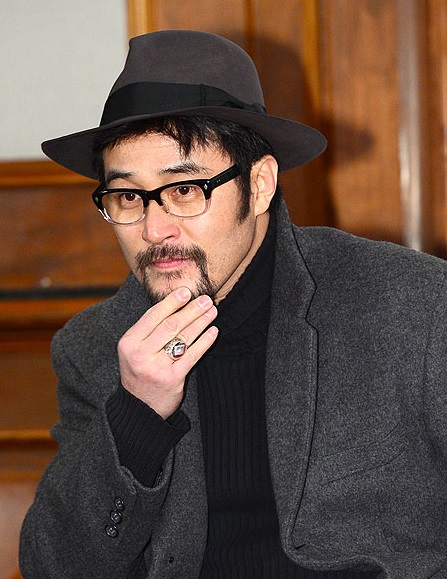CHOI Min-soo is a third generation actor. Born in 1962, he is the son of film actor CHOI Moo-ryong, who appeared in numerous films of the 60s and 70s including <The Marine Who Never Returned> (1963), and actress GANG Hyo-sil, better known for her stage performances with Theatre Sinhyeop. Both his grandparents on his mother’s side were also famous actors during the Japanese colonial period, especially his grandmother JEON Ok, one of the earliest stars of Korean cinema...
More
CHOI Min-soo is a third generation actor. Born in 1962, he is the son of film actor CHOI Moo-ryong, who appeared in numerous films of the 60s and 70s including <The Marine Who Never Returned> (1963), and actress GANG Hyo-sil, better known for her stage performances with Theatre Sinhyeop. Both his grandparents on his mother’s side were also famous actors during the Japanese colonial period, especially his grandmother JEON Ok, one of the earliest stars of Korean cinema who became known as the “Queen of Tears”, while his aunt KANG Hyo-son also found success in acting, but in North Korea. With such a background, it wasn’t a surprise that CHOI Min-soo too decided to be an actor. After graduating in 1985 from the Seoul Arts College (now Seoul Institute of the Arts), he made his stage debut later that year by performing <Wandering Stars> with Dongnang Youth Theater. He made his first screen appearance in <Son Of God> (1986), before making his breakthrough as part of the main cast of CHUNG Ji-young’s historical drama film <North Korean Partisan In South Korea> (1990), for which he was bestowed several newcomer awards. His part in in TV series <What is Love?> (1991-1992) and comedy film <The Marriage Life> (1992) brought him wider notoriety, but it was nothing compared to the phenomenon that was <Sandglass> (1995), in which he held one of the leading roles. As a rare depiction of the troubled political and social landscape of the late 20th century that notably included the first on-screen reenactment of the Gwangju Uprising, the show became one of the most popular Korean series ever, with a peak rating of 64.7%. Also in 1995, he starred in the hit action film <Terrorist> (1995) as a police officer’s brother who becomes a gangster. He would land many more prime roles in film from the mid-90s through the early 2000s, such as <Pantom The Submarine> (1999) and <Libera Me> (2000), but his career was cut short in 2008 when, following his widely reported assault on an elderly man, he announced that he would retire in the mountains for a year. He never completely recovered from the scandal, but remained quite active in television with notable appearances in series <The Blade and Petal> (2013) and <Man Who Dies to Live> (2017).
Less












